Blog
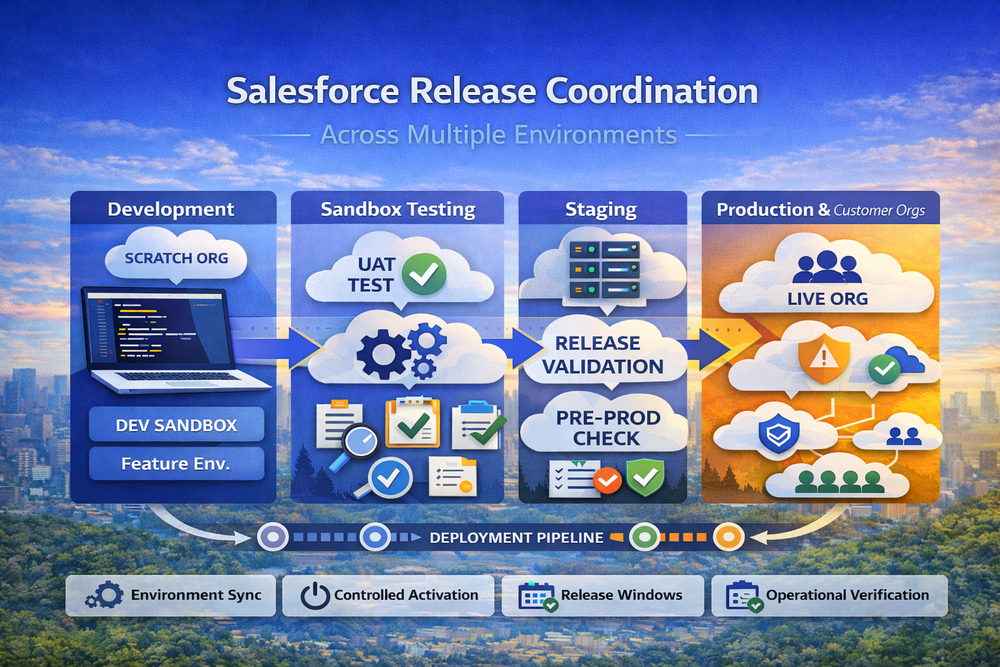
Salesforce Release Coordination Across Multiple Environments
Salesforce release coordination across multiple environments is one of the most challenging aspects of managing a modern Salesforce ecosystem. In...
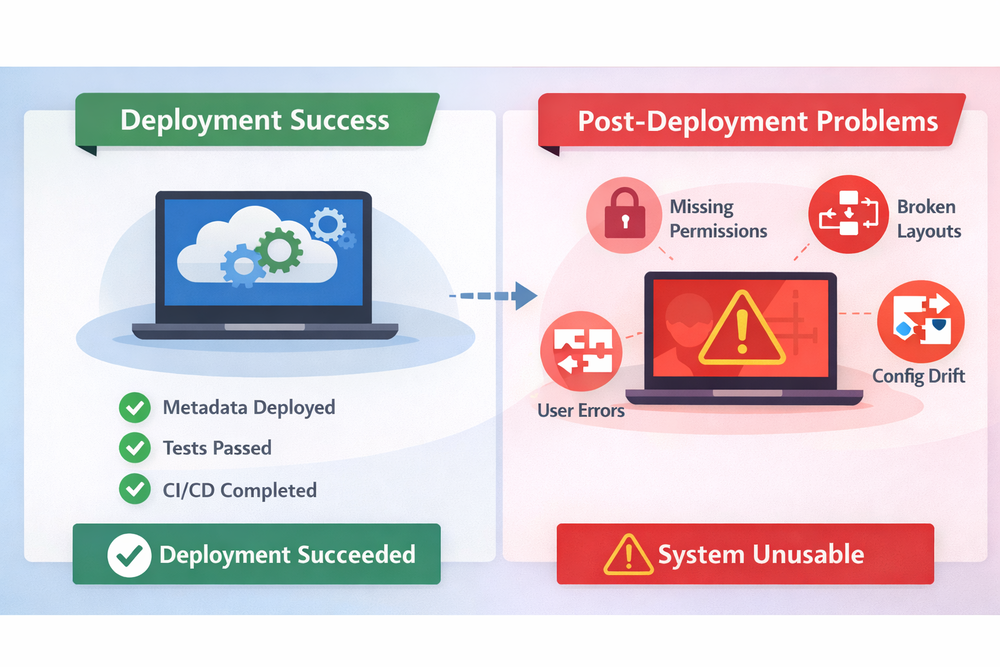
Top Salesforce Release Management Challenges in Multi-Environment Teams (2026)
Salesforce release management challenges become critical when teams operate across multiple environments — development, QA, staging and production. At small...
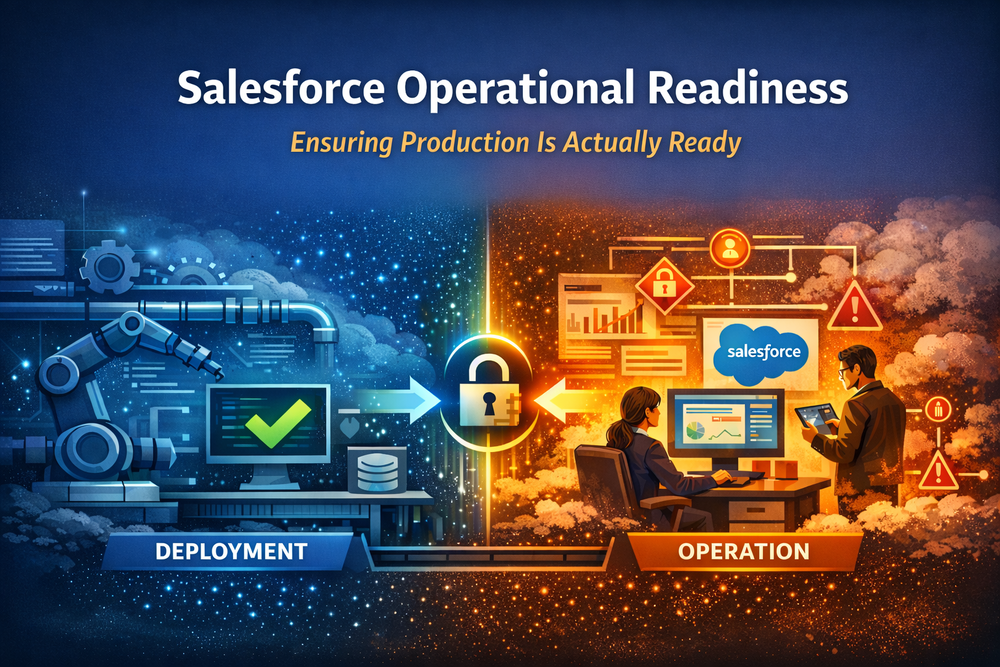
Salesforce Operational Readiness: Ensuring Production Is Actually Ready
Salesforce operational readiness is the ability of a production environment to safely handle real business activity after a release. Many...
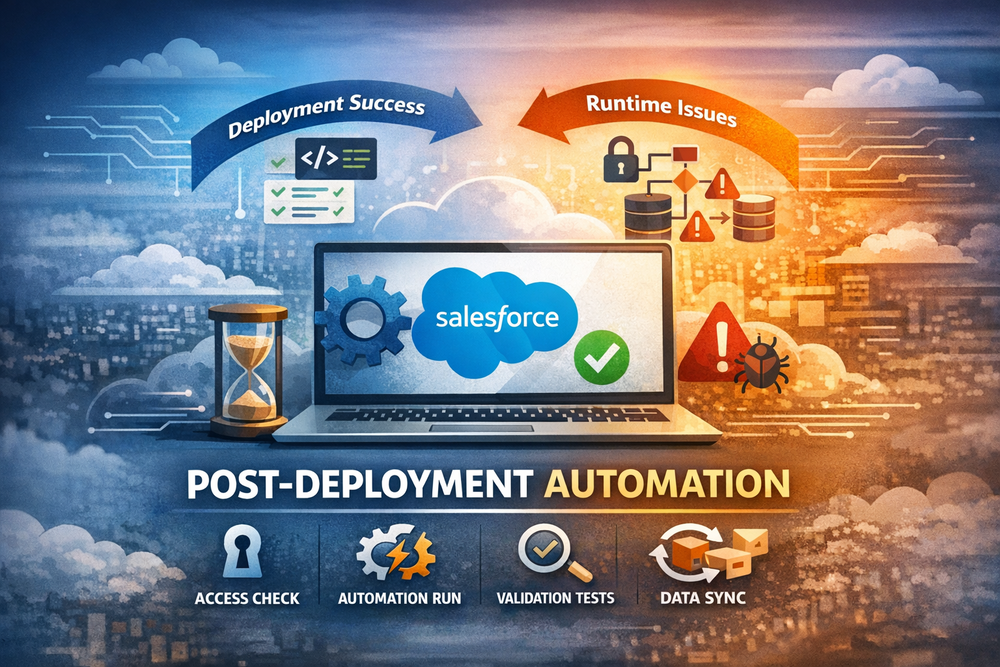
How to Automate Salesforce Post-Release Tasks Safely
Salesforce post deployment automation is the process of turning a successfully deployed release into a working production system. Many teams...
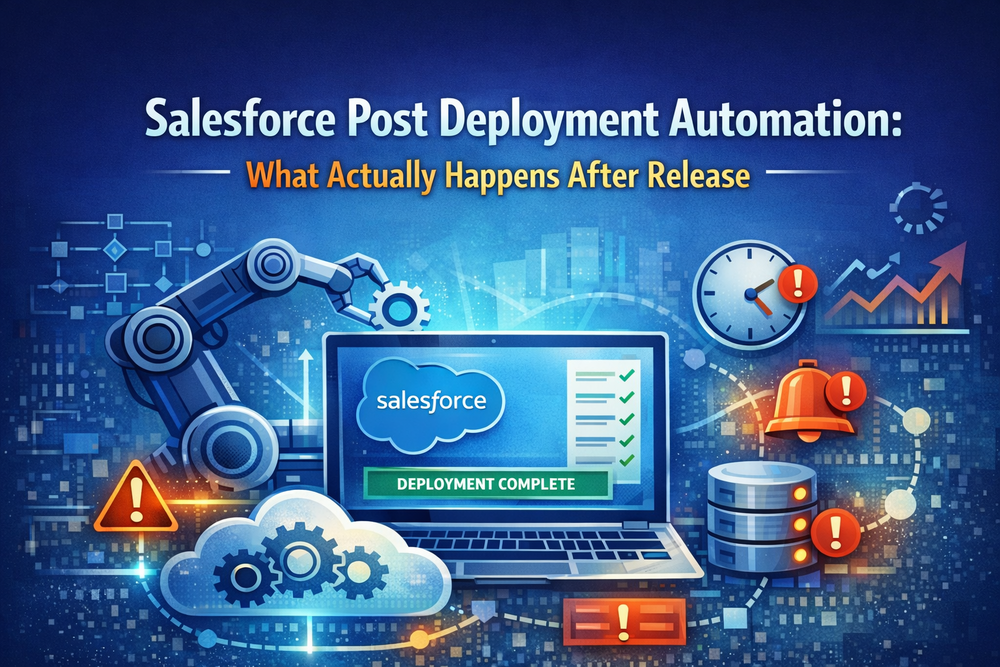
Salesforce Post Deployment Automation: What Actually Happens After Release
Salesforce post deployment automation begins after a deployment finishes successfully — not when users report problems. A release passes CI....
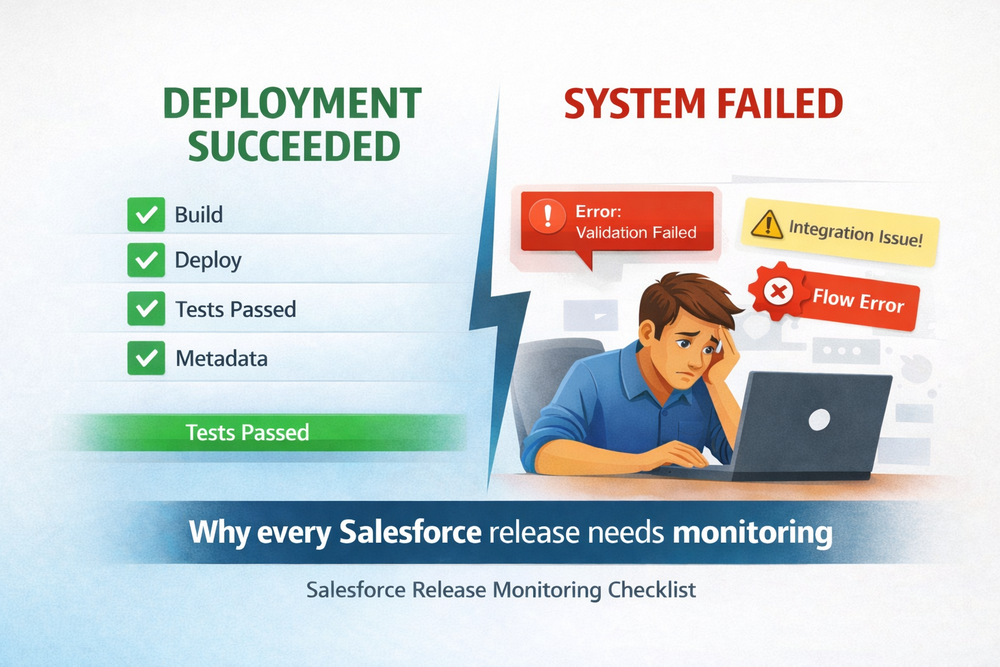
Salesforce Release Monitoring Checklist: What to Verify After Deployment
Salesforce release monitoring checklist starts right after a deployment finishes, not when users report problems. A Salesforce deployment completes successfully.The...
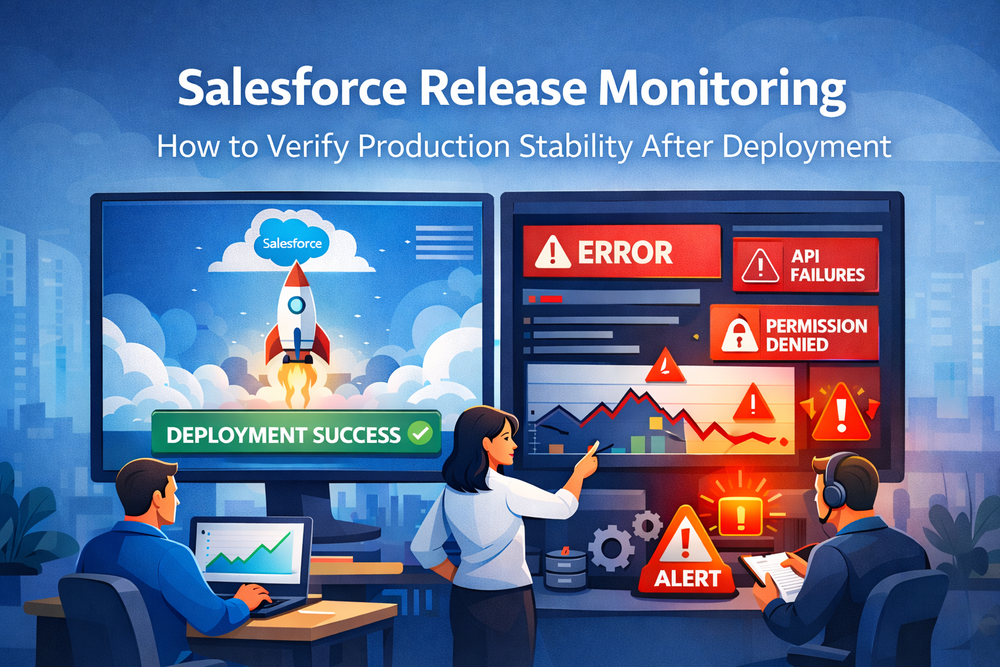
How to Implement Salesforce Release Monitoring in Production
Salesforce release monitoring is the process of verifying that a deployment is operationally ready in real production conditions after release....
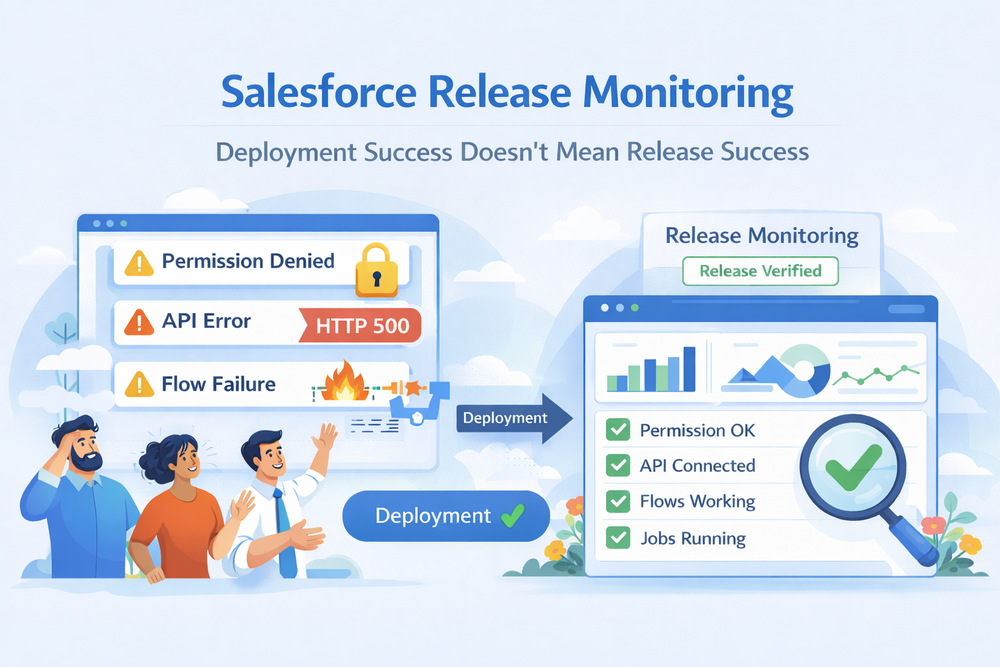
Salesforce Release Monitoring: Detect Issues After Deployment
Salesforce release monitoring helps teams detect problems that appear after a technically successful deployment. Modern Salesforce teams deploy faster than...